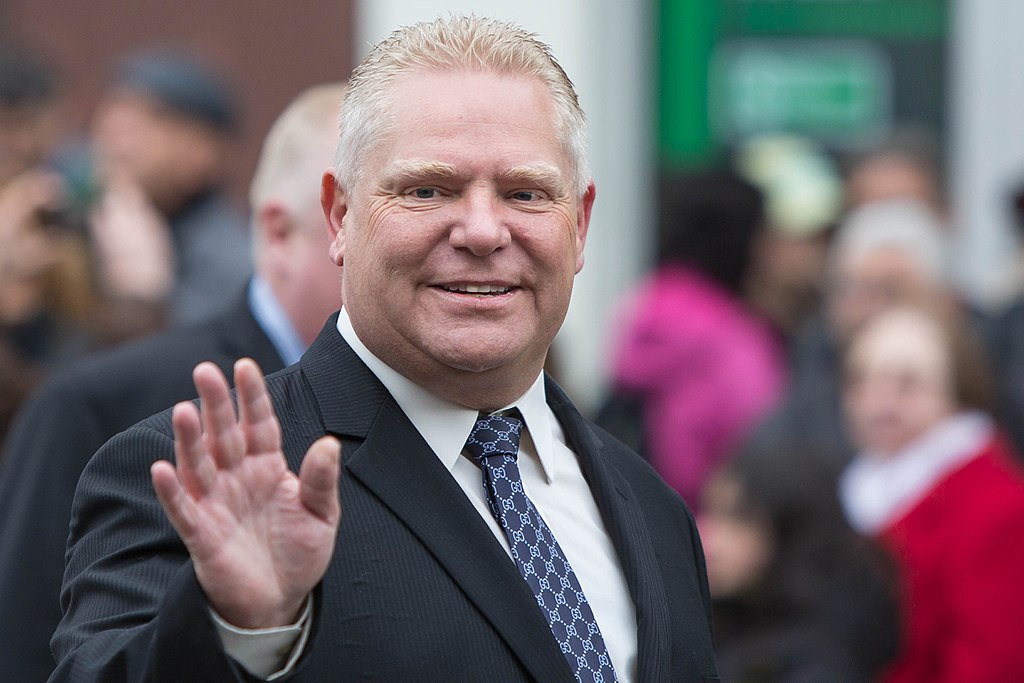MANITOULIN – The Canadian Civil Liberties Association (CCLA) won its challenge to Ontario’s anti-carbon tax stickers before the Ontario Superior Court of Justice in a recent ruling. The court found that the stickers were a form of compelled political expression that violated Section 2(b), the constitutional protection of free expression.
In the ruling, the court said, “A government or political party can, in the words of Ontario’s Minister of Energy, ‘stick it to’ another tier of government or political party as a matter of free speech in an election campaign or otherwise. But a government cannot legislate a requirement that private retailers post a sticker designed to accomplish that task. The mandatory fuel pump sticker is an unconstitutional attempt to do just that.”
At issue, according to CCLA, is that forcing an opinion on someone or putting words in their mouth is a violation of liberty, freedom of thought, association and expression. When someone does it from a position of power, it is demeaning and an abuse of authority. Forcing retailers to post a particular government-mandated message about a political issue, particularly just prior to a federal election, is compelled speech that is not reasonable and cannot be justified by any compelling government objective, CCLA said in a statement.
The Ontario legislature enacted the Federal Carbon Tax Transparency Act, 2019 (FCTTA) in May 2019. The FCTTA required that a notice explaining certain fuel charges be affixed to every gas pump in every gasoline station in Ontario. Under section 4 of the FCTTA, the notice requirement was enforced by substantial fines: $5,000 for a first offence and up to $10,000 for subsequent offences which could be accumulated daily.
The FCTTA was the Ontario government’s response to the federal government’s Greenhouse Gas Pollution Pricing Act (GGPPA) which imposed a 4.4 cents per litre fuel charge. The fuel charge increased to 6.6 cents per litre in April 2020 and is set to rise to 8.8 cents per litre in April 2021 and to 11.1 cents per litre in April 2022. The GGPPA was introduced as part of Canada’s plan to implement a federal greenhouse gas emissions pricing structure to meet emission reduction targets under the Paris Agreement.
The ruling noted that Doug Ford was quoted in the Canadian Press as saying the carbon tax was a federal campaign issue and that in April 2019 Premier Ford said, “People in our province have to know how the federal government is gouging them on the worst single tax you could ever put on the backs of people, the backs of businesses.”
The fuel charge was, however, determined to be a regulatory charge designed as part of a broader regulatory scheme with respect to carbon emissions rather than a tax.
“What is important here is not that the prescribed sticker is inaccurate or guilty of significant omissions but rather that in designing the sticker and making it mandatory, the government is trying to accomplish a task that is only coincidentally related to conveying the price of automobile fuel of carbon emissions. That is, the government is not so much explaining a policy but rather is making a partisan argument,” the ruling stated.
Section 2, 4 and 5 of the FCTTA and O. Reg. 275/19 were determined to violate section 2(b) of the Charter and to be of no force or effect. Gasoline retailers are free to keep the stickers on their fuel pumps or to remove them, as they see fit.





